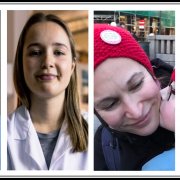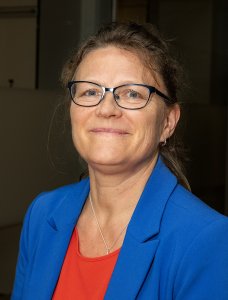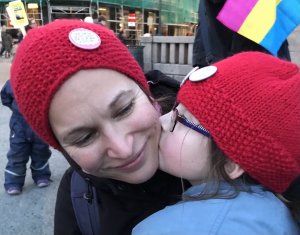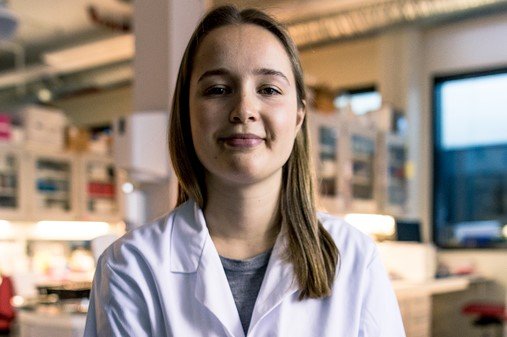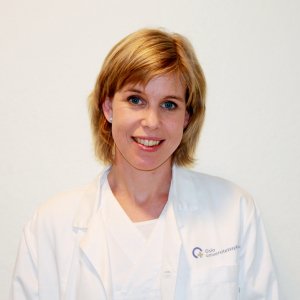Talking about cancer research and equality
International Women’s Day: three Norwegian researchers share their personal stories of being women in the cancer field.
Every year, International Women’s Day is marked on the 8th of March to put gender equality on the agenda. We wish to use this opportunity to celebrate women dedicated to developing new cancer treatments. It is important for us to highlight researchers that perform important research, who can also be role models.
We have reached out to cancer researchers across Norway, both in the public and the private sector. As a result, three accomplished Norwegian researchers share their personal perspectives. They are at different stages in their careers and focusing on different areas of research.
Combining family life and research
Åslaug Helland is a Group leader at the Institute for Cancer Research at the Norwegian Radium Hospital in Oslo and Senior Oncologist at the Department of Oncology at Oslo University Hospital. Helland’s research group focuses on translational studies on solid tumours, with a special interest in pancreatic cancers, lung cancers, ovary cancers and colorectal cancers.
“First of all, being involved in cancer research has been extremely rewarding. I started when still at med-school, in 1991, and since then we have learned a lot. Today we see that the insights gained some years ago benefit patients!
“When I started working in cancer research, there was a male dominance, which is not as obvious today. I started in Anne-Lise Børresen-Dale’s group at the Norwegian Radium Hospital. She was a world leading researcher in cancer molecular genetics and working with her was very inspiring.
“The regulations in Norway have made it possible for both men and women to combine family life and research.
“My family and I have lived abroad twice for research stays, first at Stanford University and thereafter at Peter MacCallum Cancer Centre in Melbourne, Australia, and my experience is that Norway is one of the most advanced countries in gender balance and equal opportunities.”
- Read more about Helland’s research and accomplishments on Oslo University Hospital’s website.
Let me hold the door for you
Sigrid S. Skånland is a PhD, Project group leader, lab leader and researcher at the Institute for Cancer Research at Oslo University Hospital. Skånland has established her own research group, focusing on functional precision medicine in haematological cancers, in particular the B-cell malignancy chronic lymphocytic leukemia.
“When I talk about gender equality, I do it for my daughters. Their future. When they show bold confidence, I think ‘You go, girl!’
I want them to feel that they can claim their space, even as girls. I want them to see that it is possible to be smart, strong and successful, even as a single mom. I want them to be valued equally to men, also when they become women.
“As a biologist, most of my fellow students were female, and most of my colleagues during my graduate and post-graduate studies were women. As I have become more senior, my perspective has changed. Most students and trainees are still women. But. When I go to conferences, I see that most of the speakers are men. When I apply for research funding, I see that most of the grants are awarded to men. And when I establish new collaborations, I see that most of the higher positions are filled by men. I want everyone to see this.
“My daughter sat with me through a virtual conference. She pointed to the screen and said: ‘Are there only men?’ At the age of five, she already sees it.
“As a woman, I need women in leading positions to look up to. And I greatly appreciate the men who also see the value of acknowledging and promoting excellent female scientists. After 40 years, the first female members were elected to the international workshop on chronic lymphocytic leukaemia in 2019. This could not have happened without the support from the men on the board. Together, we can raise awareness on gender equality and make the gender gap smaller.
“I hope that I can inspire other women. Kamala Harris said it nicely: ‘It’s on those of us leading the way to leave the door more open than it was when we walked in.’”
- Read more about Skånland’s research and accomplishments on Oslo University Hospital’s website.
Follow your dreams!
Simone Mester is a PhD student at The Laboratory of Adaptive Immunity and Homeostasis, which is part of both the Medical Faculty at the University of Oslo and Department for Immunology and Transfusion Medicine at Oslo University Hospital. Her research focus is on development of new biomedical technologies that may make cancer treatments more precise and effective. Her ambition is to start a biotechnology company in Norway.
Mester attended Ullern Upper Secondary School, which has an active collaboration with Oslo Cancer Cluster to inspire students to pursue careers in science and entrepreneurship. She was also the youngest researcher to be selected to SPARK, the University of Oslo’s two-year innovation programme. When she won the SPARK “pitch challenge”, she was awarded a six-month stay in ShareLab, where she now is exploring the commercial potential of her research results together with her colleague Torleif Tollefsrud Gjølberg, also a PhD student in the same laboratory.
“Early in my career, I have experienced great opportunities and lot of support. I strongly feel that the life science ecosystem is supporting me and would like to see me succeed. This is very motivating!
“For me, it is important to be part of a dynamic research environment that allows me to explore and develop as a researcher.
“I would like to encourage students and young researchers to be brave, ambitious and to follow their dreams!”
- Read more about Mester’s research and accomplishments on Oslo University Hospital’s website (in Norwegian) and at the University of Oslo’s website (in Norwegian).
Calling for clear career paths
Else-Marit Inderberg is a Senior Researcher and Group leader at the Department of Cellular Therapy at Oslo University Hospital-The Norwegian Radium Hospital. The focus of her research is immunomonitoring in clinical studies and the development of cell therapies in cancer treatments. Inderberg’s research group uses the offices and facilities in Oslo Cancer Cluster Incubator.
“My experience as a woman in cancer research in Norway is very good and my supervisors and mentors were always very supportive.
“I was always given opportunities to take on responsibility and to be independent and it was up to me to decide if I wanted or could grab them or not.
“One of the key things to change to keep future generations motivated to do cancer research is to have clear career paths for researchers, both female and male.
- Read more about Inderberg’s research and accomplishments in this article (in Norwegian) on Inven2’s website.

